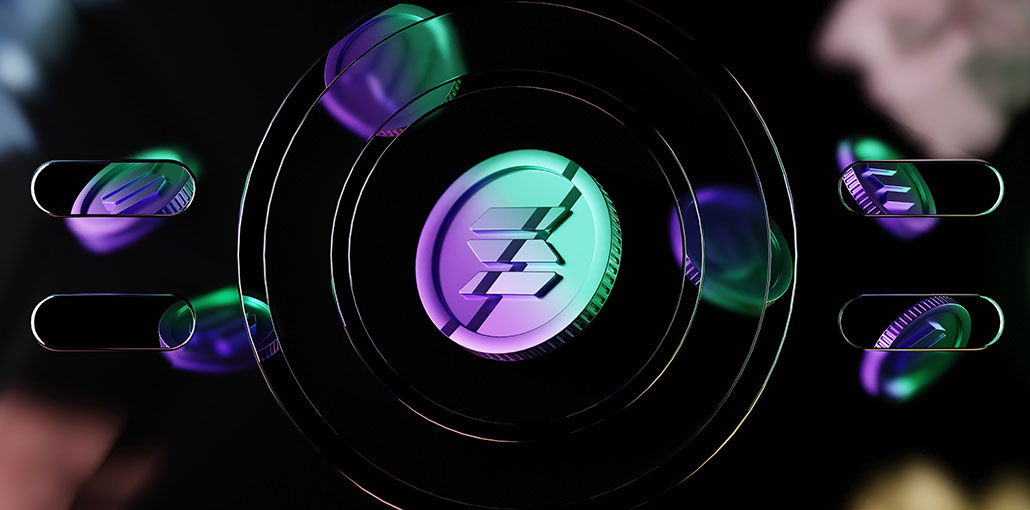Many sectors have seen the incredible impact blockchain technology has had. To improve efficiency and government agencies as well as businesses, blockchain technology is being explored by both the public and private sectors. Although blockchain is popular due to cryptocurrency, there are many possibilities at its core. Smart Contracts are one possibility that has caught the eye of the banking industry.
What is a Smart Contract?
Smart contracts are programs that are saved to the blockchain and activate when certain conditions are met. They can be used to automate agreement execution. They allow participants to decide the outcome immediately, without any intervention from intermediaries. It triggers the next event when the conditions are met. According to the PR Newswire report, the market for smart contracts will grow at 18.1% annually by 2026, according to the report.
Smart Contracts work by using simple “if/when…then statements” that are written in code on a blockchain.
The computer network will only function if all predetermined conditions have been met and are verified. These actions could include sending notices or issuing fines. Once the task is complete, the blockchain is automatically updated. This means that transactions cannot be altered. This can help to prevent cybercriminals from attacking you.
A smart contract may have multiple provisions to complete the task and satisfy the participant’s needs. Participants must first define the format and content of the transactions and data that will be stored on the blockchain. They must then agree to the “if/when…then rules governing this transaction, explore all options, and determine the dispute resolution frame.
Also read: Top Blockchain Trends For 2021 – Build Your Business With Digital Transformation
So, Exactly What Smart Contracts will Change?
Smart contracts automate transactions and let participants agree on the conclusion of an event without a central authority. These are the key characteristics of a smart contract: Multisig authentication, multisig programming, escrow ability, and Oracle inputs.
- Smart contracts are contracts that run automatically based on pre-programmed logic.
- Multisig allows multiple contract parties to approve the execution of transactions independently. Multi-party contracts also require multisig.
- Escrow locks the funds with a mediator. It unlocks the funds only after both parties have agreed to the terms. Sometimes external inputs, such as prices or performance, may be necessary to execute a transaction. These inputs can be used by banks to assist smart contracts through Oracle services.
The distributed ledger smart contracts system makes the most sense in the majority of cases. Because the smart contract will ensure that all stakeholders are connected on a secure, private, and scalable platform, this is a significant advantage.
- Transacting parties are individuals or organizations who want to be part of the contract.
- Banks, capital market participants, and insurers can operate as asset custodians and transaction validators, depending on the use case.
- Regulators can view transaction records in order to monitor the system.
This smart contract model will have a greater impact on all key financial service segments. It will also be available across all value chains. It will also bring increased value in cost savings and risk reduction, as well as efficiency.
Smart Contracts Opportunities in Banks
In today’s digital age, banks still need to have contractual agreements. This is where a third party sets the terms. It can be costly and slow down the process if you pay attention to every customer. These terms can be found on the blockchain network, where contracts are automatically executed. This opens up many opportunities for banks.
Blockchain contracts can be used to execute the terms of a contract.
Transparent Auditing
Traditional contracts are often based on important regulations, which require that the banking sector spend a lot of time maintaining records and paperwork. The reason for slow digitization in banks is also record keeping.
It is also mandatory to keep track of everyday activity, since banks offer many services, such as loans or other financial transactions. Cyber-attacks can manipulate data easily and result in incorrect information.
Banks can use smart contract solutions to gain essential tools for bookkeeping within a blockchain network.. We also use distributed solutions to improve transparency in the records. This allows banks and organizations to eradicate infiltration from their account records, as well as any fund loss.
Easier Insurance Claims Processing
The legitimacy assessment of the claim and counter-checking of the contract terms to validate it are the requirements for settlement of insurance claims. If one is looking to avoid fraudulent claims, the traditional claim process can take a lot of energy and time.
Banks can use blockchain technology-based smart contracts to automatically process insurance claims. This allows a consumer to file a claim, and validate the claim using provided codes in the blockchain network. Blockchain network systems can access insurance claims to verify and validate them. They also allow for the execution of contract terms.
Also read: How Fintech Effect on Banking System
Faster & Efficient KYC (Know Your Customer) Formalities
Banks must verify that the customer is real before they offer a loan or fund trade. Banks can find it difficult and costly to obtain information from other institutions, such as credit history.
Smart contracts can be used to verify the identity of customers using blockchain records. It will also meet compliance requirements by processing the customer’s transactional statement in real-time.
Real-time Remittance
Multiple transactions can be processed by banks. Piling data can slow down the process of processing transactions. Smart contracts can be implemented in conjunction with remittance to the system to speed up the transfer of funds between stakeholders and customers. Smart contracts can be used to speed up settlements after a trade.
Shaping the future through collaboration
Smart contracts will bring significant profits to banks. Smart contracts can do so much more than simply being an intelligent way to manage different contacts. It will be easy for banks to improve their public relations with customers and provide exceptional customer satisfaction.
However, smart contracts can also be used to build a system that is based on the standardization of code and execution. This will allow for the following benefits: Standardization of code and execution to reduce the cost of agreements; Security of transactions through encrypted distributed ledger stored with blockchain; Built-in regulatory compliance, new reporting models, regulatory compliance, and automation of digital payments and assets flow.
Although Smart Contracts are a great way to improve your banking services, it might be difficult for you to implement blockchain technology into the system. Experts in blockchain technology can help you get the best out of your system and protect it from cyber-attacks.
It will be fascinating to see how smart contracts and banking will change the way we bank.










Leave a comment